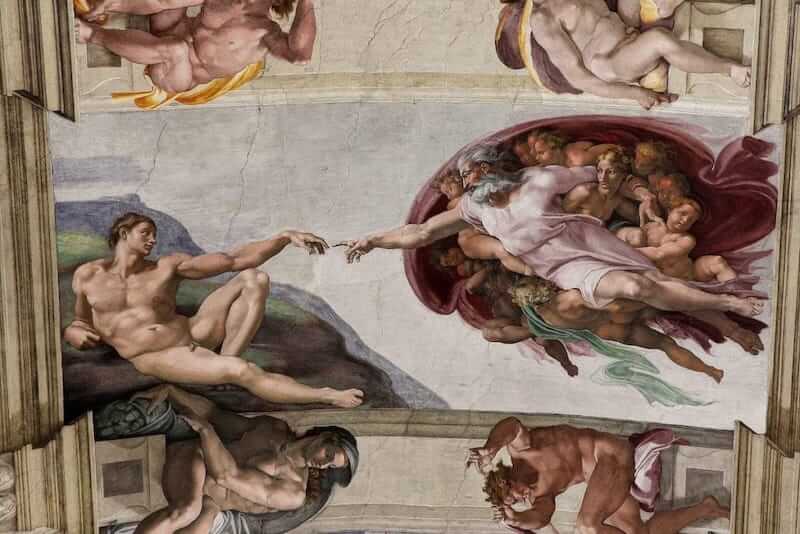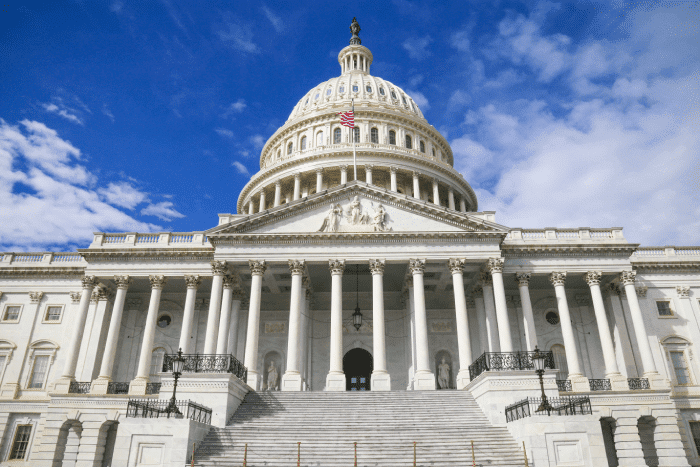Human Dignity is the Prime Principle
The Correct Understanding of the Human Person
Promotes a Culture of Life
We are Made in His Image
The Source of Authentic Development
Human Dignity, rooted in a correct view of the human person, is the prime principle of the Catholic social doctrine.
Catechism of the Catholic Church, 1700
Being made in God’s image is
“the basis not only of the unity of the human family but also of our inviolable human dignity”.
It is in this beginning that human rights are grounded.

The Prime Principle
Pope St. John Paul II said, “From this point forward it will be necessary to keep in mind that the main thread and, in a certain sense, the guiding principle…of all of the Church’s social doctrine, is a correct view of the human person and of his unique value, inasmuch as ‘man … is the only creature on earth which God willed for itself’. God has imprinted his own image and likeness on man (cf. Gen 1:26), conferring upon him an incomparable dignity, as the Church frequently insists…
Read More
“In effect, beyond the rights which man acquires by his own work, there exist rights which do not correspond to any work he performs, but which flow from his essential dignity as a person.” (Pope St. John Paul II, 11) Human Dignity, rooted in a correct view of the human person, is the prime principle of the Catholic social doctrine. (Catechism of the Catholic Church, 1700)
No One…
can take away our dignity!
“Fundamental rights are neither created by the lawmaker nor granted to the citizen. The value of human dignity…takes precedence over all political decision-making”. (Pope Benedict XVI, First Things)
“Our duty is to continue to insist…that the human person and human dignity are not simply catchwords, but pillars for creating shared rules and structures”. (Pope Francis, 1)
Read More
Human Dignity is an Unalienable Right.
“No one can take away this human right,” (Centesimus Annus, 9)…not even the majority of a democratic political body, because this dignity does not arise from the state or the will of the governed.
This concept is the core of Catholic Social Teaching going back to its earliest articulation by Pope Leo XIII in 1891: “No man may with impunity outrage that human dignity which God Himself treats with great reverence.” (Rerum Novarum, 40)
St. Gregory of Nyssa, a 4th century Church Father, said: “God did not make the heavens in his image, nor the moon, the sun, the beauty of the stars, nor anything else which you can see…You alone are made in the likeness of that nature which surpasses all understanding…Nothing in all creation can equal your grandeur.” In 1891 Pope Leo XIII declared that “the State is bound to protect natural rights, not to destroy them” (Rerum Novarum, 51). Pope St. John Paul II (Centesimus Annus, 17) stated clearly that, “No one can take away this human right”, not even the majority of a democratic political body, because this dignity does not arise from the state or the will of the governed.


No One…
can take away our dignity!
“Fundamental rights are neither created by the lawmaker nor granted to the citizen. The value of human dignity…takes precedence over all political decision-making”. (Pope Benedict XVI, First Things)
“Our duty is to continue to insist…that the human person and human dignity are not simply catchwords, but pillars for creating shared rules and structures”. (Pope Francis, 1)
Read More
Human Dignity is an Unalienable Right.
“No one can take away this human right,” (Centesimus Annus, 9)…not even the majority of a democratic political body, because this dignity does not arise from the state or the will of the governed.
This concept is the core of Catholic Social Teaching going back to its earliest articulation by Pope Leo XIII in 1891: “No man may with impunity outrage that human dignity which God Himself treats with great reverence.” (Rerum Novarum, 40)
St. Gregory of Nyssa, a 4th century Church Father, said: “God did not make the heavens in his image, nor the moon, the sun, the beauty of the stars, nor anything else which you can see…You alone are made in the likeness of that nature which surpasses all understanding…Nothing in all creation can equal your grandeur.” In 1891 Pope Leo XIII declared that “the State is bound to protect natural rights, not to destroy them” (Rerum Novarum, 51). Pope St. John Paul II (Centesimus Annus, 17) stated clearly that, “No one can take away this human right”, not even the majority of a democratic political body, because this dignity does not arise from the state or the will of the governed.
Yet, It Is Under Attack
“New ideologies, characterized by rampant individualism, egocentrism and materialistic consumerism, weaken social bonds, fueling that ‘throw away’ mentality which leads to contempt for, and the abandonment of, the weakest and those considered ‘useless’.”

What Must I Do?
Both individually and corporately we are called on to make a practical difference in the world. (Lumen Gentium, 36)
Each of us have unique responsibilities, appropriate to our state in life, to implement the social doctrine of the Church “in a manner corresponding to his vocation and according to the degree of influence he wields”. (Pope Benedict XVI, 7)
“We, Christians, cannot ‘play Pilate’ and wash our hands…We must participate in politics because politics is one of the highest forms of charity because it seeks the common good. And Christian lay people must work in politics.” (Pope Francis)
“Respect, protect, love and serve life, every human life!” (Pope St. John Paul II, 5)
FAQs
Q: What is the correct understanding of the human person?
A: “The guiding principle… of all the Church’s social doctrine is a correct view of the human person”. (Pope St. John Paul II, 11)
This means an understanding of each person’s unique value. All Catholic social teaching flows from this – the inherent dignity of every person that comes from being made in God’s image. It is in this beginning that human rights are grounded.
Why is this important?
“As one created in the image of God, each individual human being has the dignity of a person; he or she is not just something but someone, free, self-giving and entering into communion with others.” (Pope Benedict XVI, 2007 World Day of Peace Message, December 8, 2006, 2)
“The Incarnation reveals to us, with intense light and in a surprising way, that every human life has a very lofty and incomparable dignity.” (Pope Benedict XVI, Prayer for nascent human life, November 27, 2010)
“In comparison with all the other living beings that populate the earth man has an unmistakable originality. He lives simultaneously in both the spiritual and corporal dimension…We are therefore spirit, soul and body. We are part of this world, tied to the possibilities and limitation of our material condition, while at the same time we are open to an infinite horizon, able to converse with God and to welcome him within us” (Pope Benedict XVI, Prayer for nascent human life, November 27, 2010)
“God loves us deeply, totally and without making distinctions. He calls us to friendship with him, he makes us part of a reality beyond every imagination and every thought and word: his divine life itself. With feeling and gratitude, let us be aware of the value of every human person’s incomparable dignity and of our great responsibility.” (Pope Benedict XVI, Prayer for nascent human life, November 27, 2010)
Q: Is human dignity under assault?
A: “Today, perhaps more persuasively and with more effective means than in the past, human dignity is threatened by aberrant ideologies, assailed by the misguided use of science and technology, and contradicted by widespread incongruent lifestyles… Moreover, propaganda and the growing acceptance of disordered lifestyles contrary to human dignity are weakening the hearts and minds of people.
All this represents a threat to humanity, because peace is in danger when human dignity is not respected…any offense to the person is a threat to peace; any threat to peace is an offense to the truth of the person: The human person is the heart of peace’.” (Pope Benedict XVI, Communiqué Announcing the theme of 40th World Peace Day, July 13, 2006)
Q: Is peace at risk?
A: “A true and stable peace presupposes respect for human rights. Yet, if these rights are grounded on a weak conception of the human person, how could they not fail to be themselves weakened?” (Pope Benedict XVI, 2007 World Day of Peace Message, 12)
“History has shown how dangerous and damaging a State can be when it proceeds to make laws that touch the person and society, while itself claiming to be the source and principle of ethics”. (Pope Benedict XVI, Address To Participants in the General Assembly of the Pontifical Academy for Life, February 13, 2010)
Q: What is the "bottom line"?
A: “Respect, protect, love and serve life, every human life! Only in this direction will you find justice, development, true freedom, peace and happiness!” (Pope St. John Paul II, 5)





